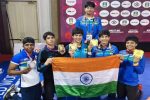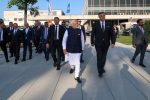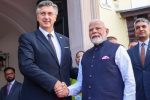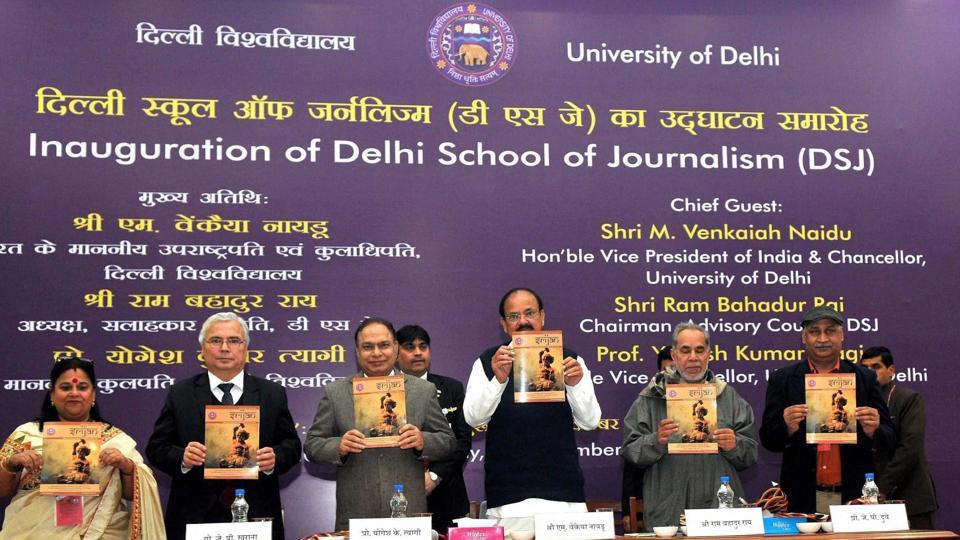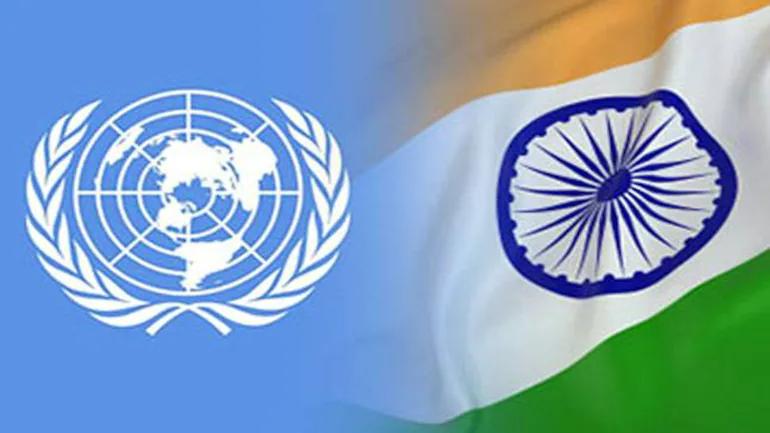Inaugurates Delhi School of Journalism
The Vice President of India, Shri. M. Venkaiah Naidu has said that Journalism is a ‘unique vocation’ to serve the truth and hold a mirror to the contemporary happenings in a society. He was addressing the gathering after inaugurating the Delhi School of Journalism in Delhi University, here today.
The Vice President said that he was heartened to know the due importance is being given to Sanskrit – an epitome of our rich classical linguistic traditions, in the course curriculum. He further said that Journalism has always been looked upon as a mission to serve people —Primarily, it is a public service. It should be remembered that the Freedom of Speech and Expression enshrined in our constitution is not absolute, but bound by reasonable restrictions, he added.
The Vice President said that in view of the critical role journalism plays in protecting democracy and in serving the larger good of the society, the profession must maintain highest ethical, moral and reporting standards. He further said that Journalists must never shirk from the core principles of journalism like independence and objectivity and shun unhealthy practices such as sensationalism. Of late, the undesirable practices of mixing news with views, partisan reportage and paid news have crept into journalism, he added.
The Vice President suggested 10 qualities to the budding journalists to be successful in JOURNALISM. They are:
- Be Joyful
- Be Objective
- Be Unbiased
- Be Responsible
- Be a Nationalist
- Be Artistic
- Be a Lifelong Learner
- Be Inquisitive
- Be Strong
- Be Mindful
The Vice President wished the Delhi School of Journalism to become one of the top global journalism schools in the near future. Collective efforts of the university officials, teachers and students will definitely yield results, he added.
Following is the text of Vice President’s address:
“I am extremely happy to formally inaugurate the Delhi School of Journalism (DSJ), a much awaited academic venture of the University of Delhi. University of Delhi is one of the premiere universities not only in India, but also in the entire South Asian region. In fact, many eminent people from different walks of life were associated with this university.
Delhi School of Journalism is the most recent addition to the rich academic legacy of the University of Delhi. Establishing this exclusive Journalism School is an obvious sign of institutional growth and maturity. I admit that it is a proud moment for me also as the Chancellor of this University.
As I understand, the uniqueness of the course offered at DSJ is that it integrates both graduate and post graduate programs–Bachelor of Journalism and Master of Journalism. The very structure of the Five Year Integrated Program in two languages –- English and Hindi, will enable the students to have an in-depth understanding of the media landscape and acquire professional skills in media and communication. Journalism course in Hindi medium will create new opportunities for students from the Hindi heartland.
Inclusion of optional Indian and foreign languages will add value to this course. It will impart multilingual capabilities to the students and broaden their knowledge horizons. I am heartened to know the due importance is being given to Sanskrit – an epitome of our rich classical linguistic traditions, in the course curriculum. Apart from this, the serene and picturesque campus of DSJ in the University Sports Complex will add an aesthetic dimension.
In front of this august audience, I wish to share certain thoughts on contemporary journalistic practices.
Journalism has always been looked upon as a mission to serve people—Primarily, it is a public service. Journalism is ultimately a ‘unique vocation’ to serve the truth and hold a mirror to the contemporary happenings in a society. The press has been described as the ‘Fourth Pillar’ and ‘Watchdog of Democracy’ because of the critical role it can play in protecting the interests of the people and moulding public opinion.
While the press and journalists enjoy certain privileges like easy access to the corridors of power, these privileges reciprocally demand responsibilities from the Press and the journalists. They may make constructive criticism of the governmental policies, but at the same time they are morally and constitutionally obliged to strengthen the democratic institutions and respect the socio-cultural ethos. It should be remembered that the Freedom of Speech and Expression enshrined in our constitution is not absolute, but bound by reasonable restrictions.
Before independence, the press played a pivotal role in mobilising public opinion against the colonial British rule. In the post-independent India, the press has played a remarkable role in sustaining and strengthening democracy, except during the Emergency when barring a few newspapers, the rest did not raise their voice.
Over the years, the media has grown and the present media landscape is full of varieties and driven by market, competition and technology. In this new ‘smart media environment’ with unprecedented flood of information, we need to be ‘smart media consumers’!
In view of the critical role journalism plays in protecting democracy and in serving the larger good of the society, the profession must maintain highest ethical, moral and reporting standards. Journalists must never shirk from the core principles of journalism like independence and objectivity and shun unhealthy practices such as sensationalism.
Of late, the undesirable practices of mixing news with views, partisan reportage and paid news have crept into journalism. The sooner such practices are eliminated the better it would be for journalists and the society at large. There should not be any compromise on the core values of journalism and practitioners of this profession must carry out their duties without fear or favour.
At his platform, I would like to suggest 10 qualities to the budding journalists to be successful in JOURNALISM. They are:
- Be Joyful
- Be Objective
- Be Unbiased
- Be Responsible
- Be a Nationalist
- Be Artistic
- Be a Lifelong Learner
- Be Inquisitive
- Be Strong
- Be Mindful
Although, these qualities are self-explanatory, I want to emphasize that “A journalist must be a Joyful, Objective, Unbiased and Responsible individual, with Nationalist moorings and Artistic skills. He or she must be a Lifelong Learner with Inquisitive mind, Strong Will and Mindfulness”. I hope that these values will be cultivated at the Delhi School of Journalism.
Let us dream big. I would like the Delhi School of Journalism to become one of the top global journalism schools in the near future. Collective efforts of the university officials, teachers and students will definitely yield results. Let this institution be instrumental in producing some of the dedicated, creative and highly skilled journalists and communication professionals, who can contribute significantly to the growth of the nation and in creating a ‘New India’ where the aspirations of the people are fulfilled.
JAI HIND!”










